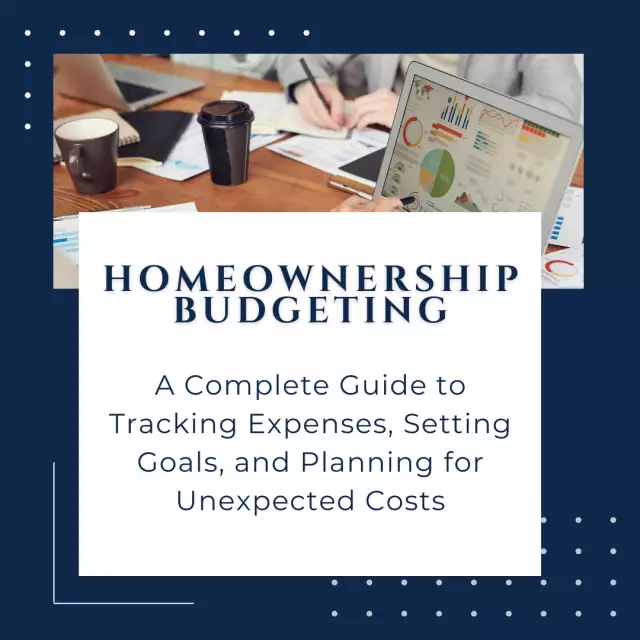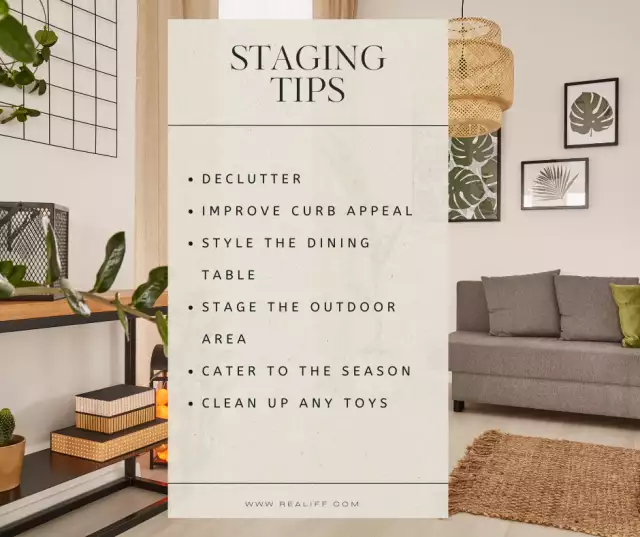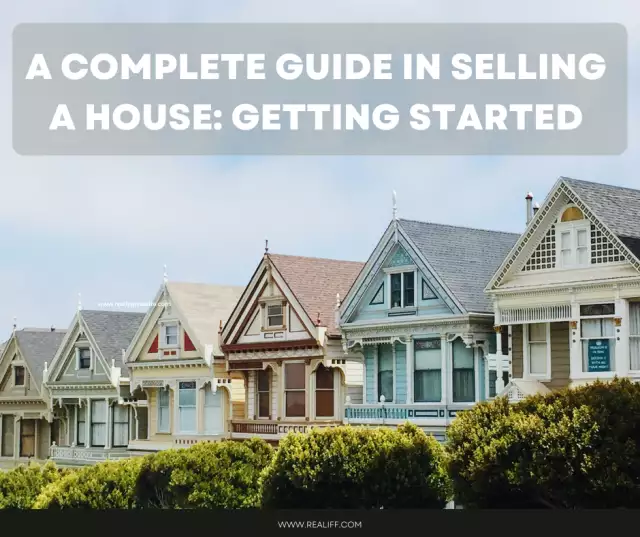Homeownership Budgeting: A Complete Guide to Tracking Expenses, Setting Goals, and Planning for Unexpected Costs
Homeownership Budgeting: A Complete Guide to Tracking Expenses, Setting Goals, and Planning for Unexpected Costs
The Importance of Home Budgeting
Homeownershipis a significant investment and requires careful financial planning. One of the essential steps in this process is creating a budget. A budget helps you track your income and expenses, set savings goals, and plan for unexpected expenses. In this guide, we'll cover everything you need to know about home budgeting, including tracking expenses, setting savings goals, and planning for unexpected expenses.
Tracking Your Expenses: A Crucial Step in Home Budgeting
The first step in home budgeting is tracking your expenses. This involves recording all your income and expenses over a set period, such as a month or a year. You can use a spreadsheet or a budgeting app to help you keep track of your expenses.
When tracking your expenses, make sure to include all your income sources, such as your salary, rental income, or freelance work. It's also essential to record all your expenses, including housing costs, utilities, transportation, food, entertainment, and any other expenses you incur.
By tracking your expenses, you'll have a clear understanding of how much money you're spending and where your money is going. This information is crucial when creating a budget plan.
Setting Realistic Savings Goals for Homeownership
The next step in home budgeting is setting savings goals. This involves determining how much money you need to save to achieve your homeownership goals, such as a down payment, closing costs, and other expenses associated with buying a home.
To set realistic savings goals, you need to consider your current financial situation, your monthly expenses, and your future income projections. You should also consider the type of home you want to buy, the location, and the overall cost.
Once you've determined how much you need to save, you can create a savings plan that outlines how much you'll save each month and how long it will take you to reach your savings goals.
Creating a Budget Plan for Mortgage Payments and Home Maintenance
After tracking your expenses and setting savings goals, the next step is to create a budget plan for your mortgage payments and home maintenance. Your mortgage payment will likely be your most significant expense as a homeowner, so it's essential to budget for it properly.
When creating a budget plan for your mortgage payments, consider factors such as the interest rate, loan term, and down payment amount. You should also factor in any additional costs, such as property taxes, insurance, and homeowner association fees.
It's also essential to budget for home maintenance costs, such as repairs and upgrades. You can set aside a portion of your budget each month for home maintenance expenses or create a separate savings account for these costs.
Budgeting for Unexpected Expenses: Home Repairs and Emergencies
As a homeowner, you'll likely encounter unexpected expenses, such as home repairs and emergencies. These expenses can be costly, so it's essential to budget for them properly.
To budget for unexpected expenses, you should set aside a portion of your budget each month for emergencies. You can also create an emergency fund to cover unexpected expenses, such as a broken water heater or a leaky roof.
The Benefits of Cutting Back on Unnecessary Spending
One of the easiest ways to free up money for homeownership expenses is to cut back on unnecessary spending. This includes things like eating out less often, canceling subscriptions you don't use, and reducing your entertainment expenses.
By cutting back on unnecessary spending, you can save more money each month, which can go towards your savings goals or other homeownership expenses.
Tips for Saving Money on Home Utilities and Bills
Another way to save money on homeownership expenses is to reduce your home utility bills and other bills. Here are some tips to help you save money:
- Install energy-efficient appliances and light bulbs.
- Use a programmable thermostat to save on heating and cooling costs.
- Install low-flow showerheads and faucets to reduce water usage.
- Turn off lights and electronics when not in use.
- Shop around for the best deals on home insurance and other bills.
By implementing these tips, you can save money on your home utility bills and other expenses, freeing up more money for homeownership expenses.
Maximizing Your Homeownership Budget: Finding Affordable Home Insurance
Home insurance is an essential expense for homeowners, but it can also be costly. To maximize your homeownership budget, it's essential to find affordable home insurance.
When shopping for home insurance, compare quotes from different providers and look for discounts. You can also increase your deductible to lower your monthly premiums, but make sure you have enough savings to cover the deductible in case of a claim.
Revising Your Home Budget Plan: Adjusting to Changing Circumstances
Your financial situation can change over time, so it's essential to revise your home budget plan regularly. You should review your budget plan at least once a year and make adjustments as necessary.
For example, if your income increases, you may want to increase your savings goals or allocate more money toward home upgrades. On the other hand, if your income decreases, you may need to cut back on expenses or adjust your savings goals.
Sticking to Your Budget: Strategies for Maintaining Financial Discipline in Homeownership
Creating a budget plan is just the first step in home budgeting; it's also essential to stick to your budget. Here are some strategies for maintaining financial discipline in homeownership:
- Set realistic goals and timelines.
- Avoid overspending on unnecessary expenses.
- Use cash instead of credit cards.
- Review your budget plan regularly.
- Seek professional financial advice when needed.
By following these strategies, you can maintain financial discipline and achieve your homeownership goals.
FAQs
Why is budgeting important for homeownership?
A: Budgeting is important for homeownership because it helps you manage your finances and ensure that you have the funds you need for expenses like mortgage payments, utilities, and home repairs. By creating a budget plan, you can set savings goals, plan for unexpected expenses, and maximize your homeownership budget.
How do I track my expenses?
A: You can track your expenses by creating a spreadsheet or using a budgeting app to record your income and expenses. Categorize your expenses (such as housing, food, transportation, etc.) and track your spending over time to see where your money is going and identify areas where you can cut back.
What are some cost-saving measures I can implement around my home?
A: You can implement cost-saving measures around your home by installing energy-efficient appliances and light bulbs, using a programmable thermostat, installing low-flow showerheads and faucets, turning off lights and electronics when not in use, and shopping around for the best deals on home insurance and other bills.
How do I find affordable home insurance?
A: To find affordable home insurance, compare quotes from different providers and look for discounts. You can also increase your deductible to lower your monthly premiums, but make sure you have enough savings to cover the deductible in case of a claim.
How often should I revise my budget plan?
A: You should revise your budget plan at least once a year and make adjustments as necessary. You may need to revise your budget plan more frequently if your financial situation changes, such as an increase or decrease in income.
What should I do if I'm having trouble sticking to my budget?
A: If you're having trouble sticking to your budget, try setting realistic goals and timelines, avoiding overspending on unnecessary expenses, using cash instead of credit cards, reviewing your budget plan regularly, and seeking professional financial advice when needed. It's important to maintain the financial discipline to achieve your homeownership goals.
Conclusion
In conclusion, home budgeting is an essential part of the homeownership journey. It can be a daunting task to keep track of all your expenses, but it's important to create a budget plan that works for you and your financial situation. By setting realistic savings goals and planning for unexpected expenses, you can ensure that you have the funds you need to achieve your homeownership goals.
Additionally, finding affordable home insurance and implementing cost-saving measures around the home can help maximize your homeownership budget. It's important to review and revise your budget plan regularly to adjust to changing circumstances, such as an increase or decrease in income.
Finally, it's crucial to maintain financial discipline by sticking to your budget plan and avoiding overspending on unnecessary expenses. With dedication and discipline, you can achieve your homeownership goals and enjoy the benefits of owning a home, such as building equity and creating a stable living environment for you and your family.
If you're struggling with creating a budget plan or maintaining financial discipline, don't hesitate to seek professional financial advice. Financial advisors can provide guidance and support in achieving your financial goals and making informed decisions about your money.





